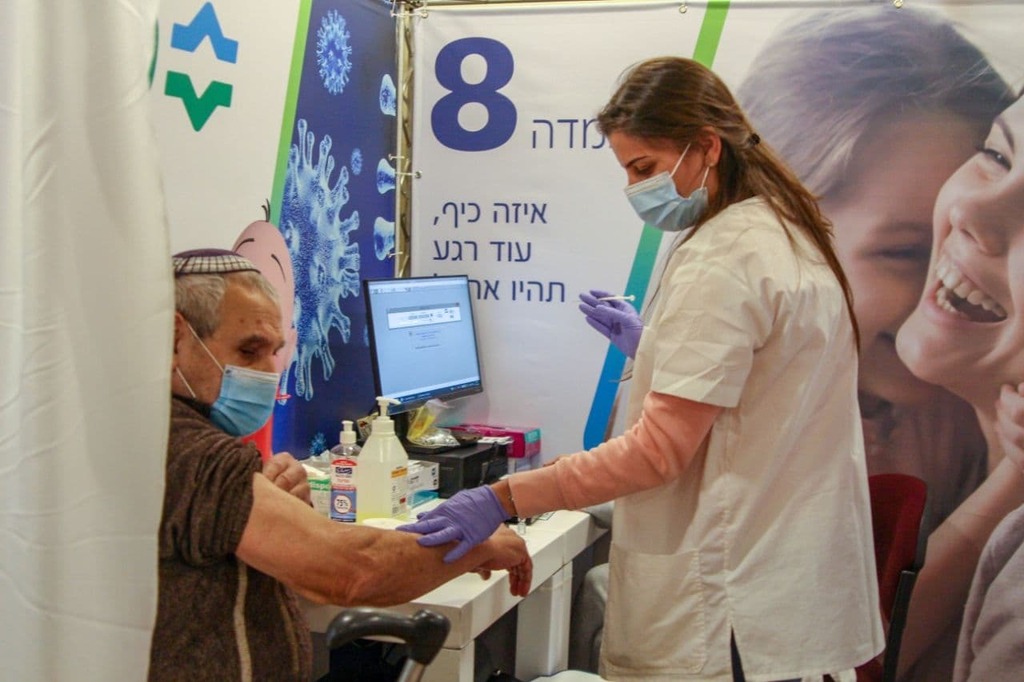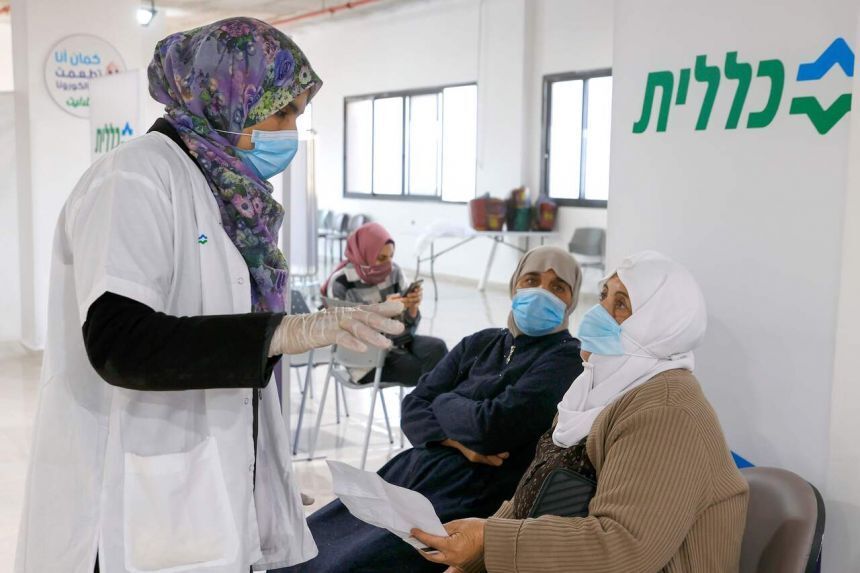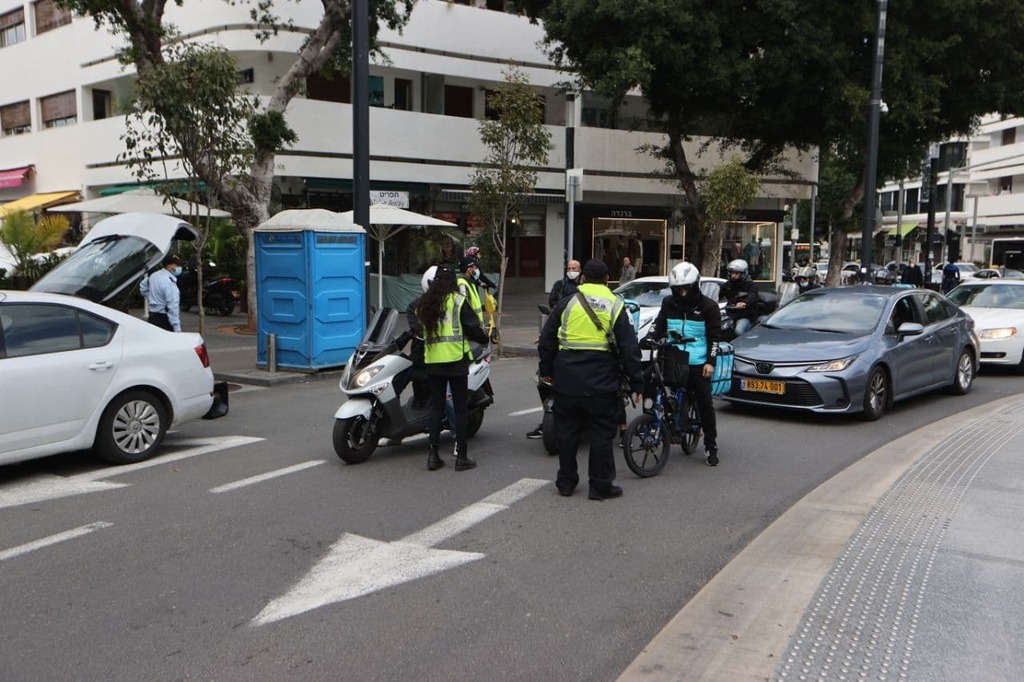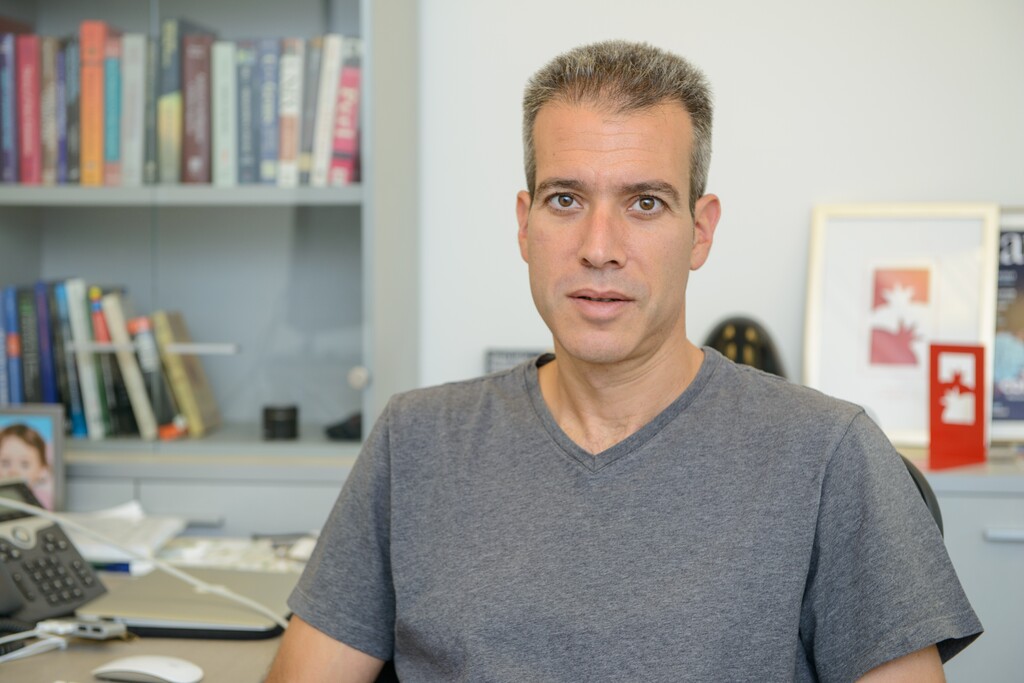A senior health expert said Sunday that despite the current coronavirus infection wave being the toughest Israel has seen since the start of the pandemic, the vaccines have begun showing their effectiveness in bringing down the contagion.
"Over 1,400 people died in January alone and after nearly five weeks of lockdown, we are at a higher number of daily cases than when we entered it in late December," said Prof. Eran Segal, who developed Weizmann Institute's prediction model for the spread of coronavirus in Israel.
4 View gallery


A man inoculated for coronavirus at a vaccination center in Rishon LeTsiyon
(Photo: Ido Erez)
"On the other hand, over the past seven days, we have seen a pronounced decline in confirmed cases. The virus' basic reproduction number is under 1, which means that every day fewer and fewer people become infected."
Despite this, Segal said the important variable to consider now is the number of serious patients, which has been hovering around 1,200 for the past two weeks. "This is an incredibly high number, overcrowding hospital wards and creating excess deaths," he said.
According to his estimations, excess deaths during the previous infection wave stood at about 20% and during the current one at around 30%.
Despite this data, Segal said that he is optimistic.
"According to our analysis, vaccines have immensely affected those inoculated," he said. "For example, in cities where we saw a high vaccination turnout for people over 60, there is a 50% drop in confirmed cases, a 40% decrease in hospitalizations and 15% less serious patients."
"We still do not see this effect in communities with low turnouts. The vaccine's effect is profound," he added.
Health Minister Yuli Edelstein said on Sunday that over 3 million Israelis have already received at least one dose of the vaccine, constituting 30% of the population, with 1,729,000 having received the second dose.
Israel's vaccination drive which began in December is considered the most successful compared to any other country.
Segal said that the cities with the highest turnout for vaccines were Mevaseret Zion, Ramat Hasharon, Rosh Haayin and Herzliya, while the ones with the lowest turnout of people to receive their shots were recorded in Nazareth, Ashdod and Lod.
4 View gallery


A healthcare worker speaks to an Arab Israeli woman before giving her a Covid-19 vaccine
(Photo: AFP)
"The Arab sector is showing very low turnout, as well as the ultra-Orthodox sector," he said.
As ministers were set to meet Sunday to extended the lockdown by an additional week, Segal said that such a measure is warranted to allow the decreasing trend in morbidity to continue.
"Despite the vaccine's effect on severe morbidity and reports by health funds of a drop in newly confirmed cases, we cannot ignore the fact the number of serious patients is very-very high, and since any mistake will cost us dearly, it may be warranted to take a few more days to make sure the downward trend continues," he said.
4 View gallery


Police officers in central Tel Aviv enforcing lockdown travel restrictions
(Photo: Moti Kimchi)
"On a strategic level, we must continue to work for the inoculation of the general population, with an emphasis on at-risk groups. The vaccination drive is going well, but there are whole sectors of society that are not turning out in big enough numbers."
On the possibility of schools soon reopening, Segal said that the government must ensure a gradual exit from the lockdown.
"A non-gradual reopening will raise the infection rate and throw out the vaccines' influence completely," he said. "so I expect that over the coming week we will see a drop in serious patients."


